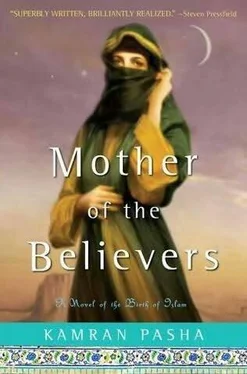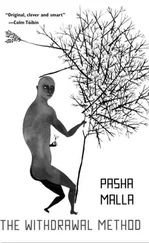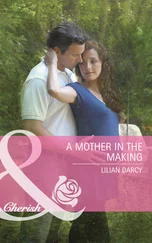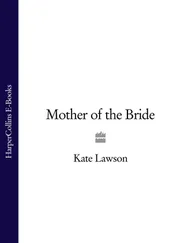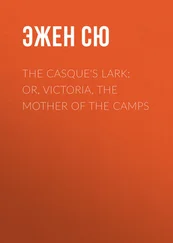I wasn’t sure why I had been asked to come, but some instinct in me said that Ali must have mentioned to the Prophet my compassion for the Jewish girl who was the sole woman to be held prisoner. I sensed that judgment would be rendered against the Qurayza tonight and my husband wanted me to be there to witness it. If not to approve, then, perhaps, to understand.
As we entered the granary that was now a prison, I saw the Jewish men standing in prayer, surrounded by hundreds of armed guards. Their arms were still tied, but their legs had been freed so that they could sway back and forth as the elderly rabbi of the settlement, Husayn ibn Sallam, led them in reciting the ancient Hebrew words that sounded so much like our own tongue and yet were still so foreign
The Messenger stood respectfully, watching the men pray. I caught sight of the girl Najma alone in a corner, her red hair covered by a scarf. She did not join the others in worship but stared straight ahead, unblinking.
When the rabbi finished his invocations, a blanket of silence fell upon the crowd as all turned to face the man who would decide their fate. A tall, thin man with dark eyes who had been standing beside ibn Sallam now stepped forward, his head held proudly, and faced the Messenger of God.
My husband met his eyes for a long moment. When he spoke, it was in a deep voice. His words echoed throughout the vast chamber that had stored our supplies of wheat and barley before they were consumed during the siege and the famine.
“Kab ibn Asad,” my husband said, and the tall man nodded in acknowledgment. “You have sought my judgment against your people.”
“I have,” he said with great dignity.
The Messenger stepped forward, his black eyes glistening in the torchlight.
“Your treachery nearly brought the fire of death into he streets of Medina,” Muhammad said. “Had God not intervened, you would have assuredly left none of my people alive.”
Kab looked at his adversary without blinking.
“Yes,” he said. It was a simple statement of fact, without any guilt or shame.
The Messenger frowned and I could see a hint of the outrage that he had shown when he first learned of the Qurayza’s deal with the Confederates.
“It is not for me to judge you,” my husband said, to my surprise. “My anger is so great that I fear I will not be impartial.”
Kab nodded, no emotion on his face.
“I understand.”
The Messenger now turned to the injured Sa’d, who was leaning against a wooden post, his hand covering the bandage. I noticed that the splotch of blood had spread and now the entire wrap was soaked.
“Will you submit to the judgment, Sa’d ibn Muadh?” the Prophet asked.
Kab turned to face Sa’d. I recalled now that the two had once been friends and that Sa’d had served as an intermediary between the Muslims and Jews over the past several years. But if Sa’d had retained any memory of that friendship, I could not see it in his brown eyes, which were burning with anger at betrayal.
“Sa’d has always been a friend to the Qurayza. I trust that he will do what is just.” But even as Kab spoke these words, I knew that he, too, understood that whatever courtesies had existed between them, the bitterness of war had erased that past forever.
Sa’d moved forward, grimacing from the pain of his mortal wound. He stepped so close to Kab that that their noses almost touched. Kab did not flinch as Sa’d looked straight into his eyes and spoke.
“You are not Muslims and so you are not subject to the laws that God has revealed in the holy Qur’an,” he said, his voice quivering with anger. “I can only judge you by your own laws. Do you understand?”
Kab nodded, never letting his eyes leave Sa’d.
“Yes,” was all he said.
Sa’d stepped back and faced the elderly rabbi. Ibn Sallam had been the only one of the exiled tribe of Qaynuqa who had been permitted to stay in Medina, as he had always been respectful of the Muslims’ beliefs and had never disparaged my husband’s claim to being a prophet. The old sage had lingered in the oasis, ministering to the remaining Jewish tribes, until the Bani Nadir had been expelled and only the Qurayza remained.
“Tell me, Rabbi, what does Moses say is the punishment for a tribe that breaks its treaty and makes war upon its neighbor?”
It was a simple question, asked in a respectful tone, but I saw the color drain from Ibn Sallam’s wrinkled cheeks.
“The text is ancient,” the rabbi responded slowly, as if choosing every word carefully. “The words refer to a time long past.”
Sa’d ibn Muadh turned back to the Jewish chieftain.
“Do you believe, Kab, that the Torah is God’s Word?”
Kab smiled softly, realizing Sa’d’s intent.
“I do.”
Sa’d spoke loudly now, so that his words echoed throughout the granary.
“Then God’s Word does not change from day to day,” he said. “What was revealed to Moses in days long past will serve as a witness against you tonight.”
Kab nodded
“So be it.”
Sa’d faced the rabbi and pointed a finger at him.
“Ibn Sallam, what does your Torah say about the fate of a tribe that makes war upon its neighbors?”
Ibn Sallam hesitated. He looked at Kab, who nodded. And then the old rabbi unraveled the sacred scroll of the Torah from which he had been praying and read aloud, a quiver of sadness in his raspy voice.
“In Devarim, which the Greeks call Deuteronomy, in chapter twenty, verses ten through fourteen, the Lord says: ‘When thou comest nigh unto a city to fight against it, then proclaim peace unto it. And it shall be, if it make thee answer of peace, and open unto thee, then it shall be, that all the people that is found therein shall be tributaries unto thee, and they shall serve thee. And if it will make no peace with thee, but will make war against thee, then thou shalt besiege it. And when the Lord thy God hath delivered it into thine hands, thou shalt smite every male thereof with the edge of the sword. But the women, and the little ones, and the cattle, and all that is in the city, even all the spoil thereof, shalt thou take unto thyself; and thou shalt eat the spoil of thine enemies, which the Lord thy God hath given thee.’”
I felt a chill as I heard these words and realized that the fate of the Qurayza had been set. They had been doomed by their own scriptures to suffer the fate that their ancestors had unleashed upon others a millennium before. The men would be all killed, and the women and children would live as slaves in the land they had once ruled.
Sa’d nodded and met Kab’s eyes.
“Your Book has spoken,” he said.
Kab did not flinch at the cruel sentence but simply nodded in resignation, as if he had expected no less.
As we turned to leave, I heard the rabbi lead the prisoners in a haunting chant that I could not understand but whose intonations, rife with weariness and sorrow, did not need to be translated. I cast a final glance at Najma, who continued to stare straight ahead as if locked in her own dream, and then stepped outside.
We walked back to the center of the city in silence. When we reached the Masjid, the Messenger embraced Sa’d and thanked him for bravely pronouncing the judgment. The dying man nodded, and my father and Umar helped carry him back to his bed. I had no doubt from his gaunt and yellowing skin that he would not live long enough to see the punishment of the Qurayza carried out.
That night, I lay by my husband’s side, facing away from him rather than nestling against his bosom as was my habit.
“You are angry at me,” he said gently.
I hesitated, unsure of what I was feeling in the hollow of my stomach.
“No,” I said at long last. “They would have killed all of us had they been able to attack. If we let them leave as we did the Qaynuqa and the Nadir, they would have come back to attack us. The judgment is cruel, but they cannot complain. The Qurayza have been punished by their own traditions.”
Читать дальше
